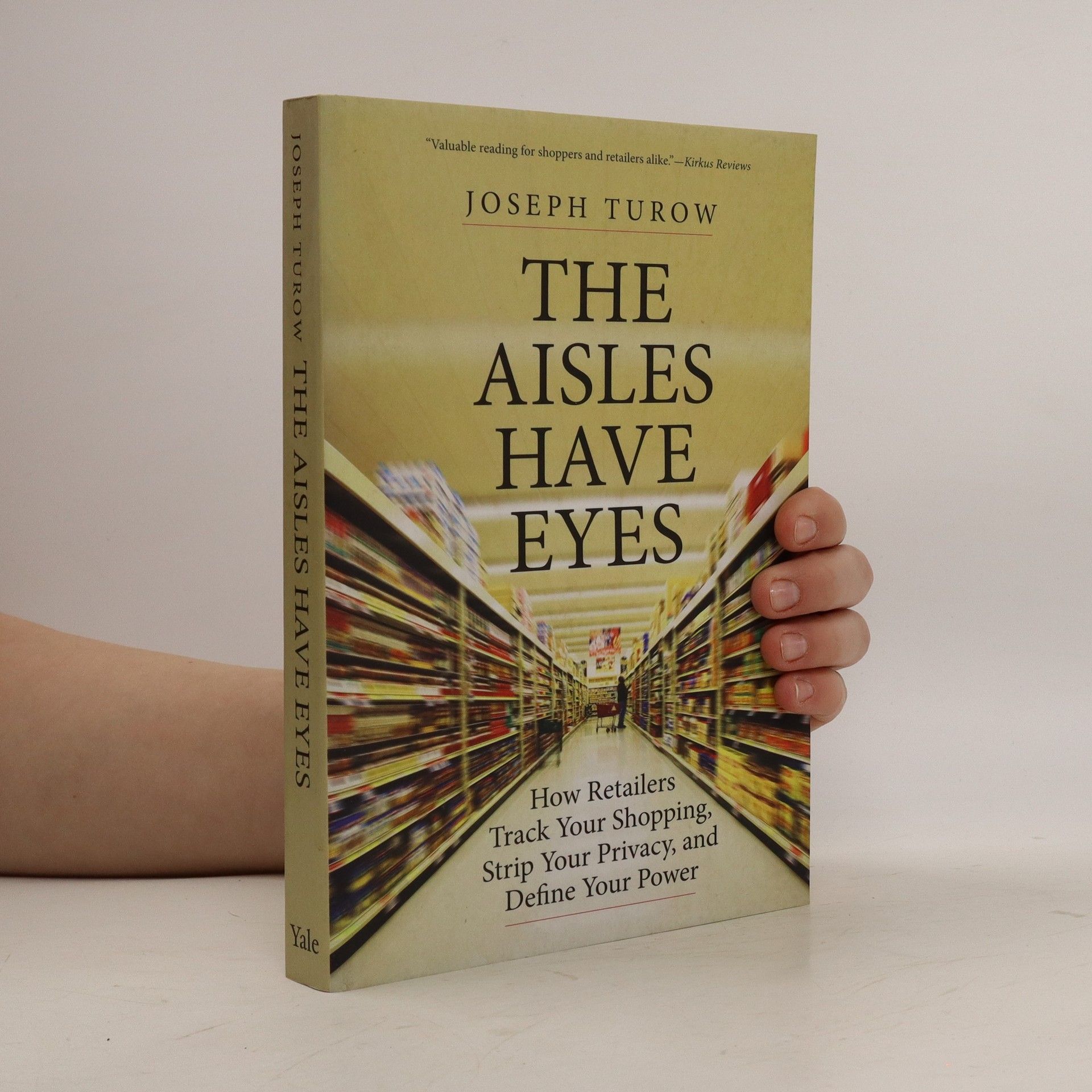Throughout the course of this book, Joseph Turow repeatedly highlights the key distinctions between mass communication and other forms of communication helping students to become media literate, critical consumers.
Joseph Turow Boeken



The Aisles Have Eyes
- 344bladzijden
- 13 uur lezen
A revealing and surprising look at the ways that aggressive consumer advertising and tracking, already pervasive online, are coming to a retail store near you By one expert's prediction, within twenty years half of Americans will have body implants that tell retailers how they feel about specific products as they browse their local stores. The notion may be outlandish, but it reflects executives' drive to understand shoppers in the aisles with the same obsessive detail that they track us online. In fact, a hidden surveillance revolution is already taking place inside brick-and-mortar stores, where Americans still do most of their buying. Drawing on his interviews with retail executives, analysis of trade publications, and experiences at insider industry meetings, advertising and digital studies expert Joseph Turow pulls back the curtain on these trends, showing how a new hyper-competitive generation of merchants--including Macy's, Target, and Walmart--is already using data mining, in-store tracking, and predictive analytics to change the way we buy, undermine our privacy, and define our reputations. Eye-opening and timely, Turow's book is essential reading to understand the future of shopping.
The daily you how the new advertising industry is defining your identity and your worth
- 234bladzijden
- 9 uur lezen
The Internet is often hyped as a means to enhanced consumer power: a hypercustomized media world where individuals exercise unprecedented control over what they see and do. That is the scenario media guru Nicholas Negroponte predicted in the 1990s, with his hypothetical online newspaper The Daily Me—and it is one we experience now in daily ways. But, as media expert Joseph Turow shows, the customized media environment we inhabit today reflects diminished consumer power. Not only ads and discounts but even news and entertainment are being customized by newly powerful media agencies on the basis of data we don’t know they are collecting and individualized profiles we don’t know we have. Little is known about this new industry: how is this data being collected and analyzed? And how are our profiles created and used? How do you know if you have been identified as a “target” or “waste” or placed in one of the industry’s finer-grained marketing niches? Are you, for example, a Socially Liberal Organic Eater, a Diabetic Individual in the Household, or Single City Struggler? And, if so, how does that affect what you see and do online? Drawing on groundbreaking research, including interviews with industry insiders, this important book shows how advertisers have come to wield such power over individuals and media outlets—and what can be done to stop it.